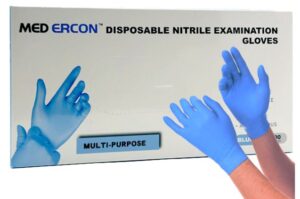Alcohol Abuse FAQ

Alcohol Abuse Today
According to Harvard Medical School, alcohol abuse is the second most common form of substance abuse in the United States. An estimated 10% of adult men and 5% of adult women have an alcohol abuse disorder. Excessive alcohol consumption may indicate a bigger problem, but as to why some people can’t control it might seem like another question. Moreover, many who have desperately tried to stop excessive alcohol consumption now have to struggle with alcohol withdrawal, and its effects. Addictionrehabtreatment.com, an online resource for both those recovering and their families explains more on alcohol addiction, identifying it as a progressive disease. They state:
“Time is of the essence. The most effective advice is not to wait until things get worse or even fatal.”
From the National Institutes of Health, here are the most pressing questions about alcohol abuse:
- What is alcoholism?
- Is alcoholism a disease?
- Is alcoholism inherited?
- Can alcoholism be cured?
- Can alcoholism be treated?
- Which medications treat alcoholism?
- Does alcoholism treatment work?
- Do you have to be an alcoholic to experience problems?
- Are specific groups of people more likely to have problems?
- How can you tell if someone has a problem?
- Can a problem drinker simply cut down?
- If an alcoholic is unwilling to get help, what can you do about it?
- What is a safe level of drinking?
- Is it safe to drink during pregnancy?
- Does alcohol affect older people differently?
- Does alcohol affect women differently?
- Is alcohol good for your heart?
- When taking medications, must you stop drinking? 1
- How can a person get help for an alcohol problem?
How serious is the alcohol abuse problem?
Alcohol is the most abused drug in America. According to the National Institute on Alcohol Abuse and Alcoholism (NIAAA), more than 14 million Americans are alcoholics. A lot of adults also engage in drinking patterns that might lead to alcoholism. Alcohol abuse is also a crucial factor that affects home, work, and on the road injuries. Almost half of all traffic deaths involve alcohol. In the workplace, alcohol abuse manifests via absent or frequently late employees, lower productivity and morale, and poor office relationships. Studies show that alcohol abuse in the workplace costs employers $33 billion to $68 billion per year.
How is alcoholism handled in the workplace?
When alcohol use interferes with the employee’s ability to perform his tasks, the employer does have valid concerns. The proper performance of duties, health and safety issues, and employee conduct are affected. If an employer has a policy that states, “showing up under the influence is an offense that one can be fired for,” then the employer can terminate an employee. However, if an employee doesn’t drink at work and is qualified to perform his duties, certain protections may exist for them under the federal law, ADA. For example, the employee may request and receive scheduling accommodations to facility counseling appointments without fear of losing his job.
What is the importance of having an alcohol-free workplace?
Employees are adults and therefore are legally allowed to consume alcohol. But there is also a need to balance and respect others’ right to have an alcohol-free workplace. Hence, it is crucial to protect all individuals’ safety, health, and well-being at work. Below is a list of advantages of having an alcohol-free workplace.
- Employees who do not use or abuse alcohol are more productive, more stable, and promote zero absenteeism.
- They prevent health and safety risks to themselves, their co-workers, and others.
- Having an established alcohol-free workplace program gives balance. It encourages respect for individual dignity with the need to maintain an alcohol-free environment.
What are the effects of alcohol use on employees?
Alcohol consumption is part of the social fabric in much of the world. Moreover, it can be the cause of difficulties in relationships both at home and in the workplace. Effects of alcohol use on employees include:
- Workers demonstrate a higher level of absenteeism from work.
- Employees work less efficiently and can place themselves or others in dangerous situations.
- Employees are often late to work, exhausted at work, bring down the morale of fellow workers, and put them at greater risk. Alcohol can also cause resentment among employees who have to ‘carry’ colleagues whose work declines because of their drinking. They are also more likely to be involved in a deadly work-related accident.
What happens when alcohol use in the workplace is not prevented?
Alcohol use in the workplace doesn’t only affect the alcoholic employee but also co-workers. Employees may feel mental stress at the office when working alongside alcohol abusers. Some workers have also been endangered, injured, had strained relationships, or put in extra hours to redo a task because of a colleague drinking. Alcoholism in the workplace can also be extremely costly to an employer, for example, because the occurrence of workplace accidents may increase, thanks to impaired reflexes. Other incidents that may occur include assault and battery and sexual harassment. All of these lead to lost productivity, impacting business goals.
What measures should be done once the employee has been found to be positive with alcohol use?
If alcoholism is left untreated, it can result in more severe health complications, financial troubles, and relationship issues. Below is a variety of treatment methods currently available.
- Behavioral Treatments – are led by health professionals, aimed at changing drinking behavior through counseling.
- Medications – are prescribed by a primary care physician or other health professional and may be used alone or in combination with counseling.
- Mutual-Support Groups Alcoholics Anonymous (AA) and other 12-step programs provide peer support for people quitting or reducing their heavy drinking spree. Together with treatment led by health professionals, mutual-support groups can provide a valuable added layer of support.
What kind of test is used to determine alcohol use problems?
Anyone can be affected by alcohol use. However, it can be challenging to recognize the signs of alcohol abuse or addiction. A positive answer to the screenings below may indicate a person has a drinking problem. AUDIT – Alcohol Use Disorder Identification Test A self-test where the questions help in the evaluation of alcohol use and identify any effects on the person’s health and wellbeing. CAGE questionnaire is famous for screening a person’s drinking level.
- C Have you ever felt you should cut down on your drinking?
- A Have people annoyed you by criticizing your drinking?
- G Have you ever felt bad or guilty about your drinking alcohol?
- E Eye opener: Have you ever had a drink first thing in the morning to steady your nerves or to get rid of a hangover?
What kind of assistance can companies provide to its employees?
Providing assistance and support for employees should be part of a business’ preparedness program. Consequently, employers offer educational benefits as well as employee assistance programs. The Employee Assistance Program( EAP) is a confidential counseling and referral service of highly trained practitioners. Undoubtedly, it can address a wide range of employee problems and protect them when unexpected disasters strike. Benefits of EAP include:
- Access to treatment for employees with problems that affect their job performance.
- Assist employers in complying with drug-free workplace laws.
- Influential to the decrease in accidents of Compensation claims, absenteeism, health benefit usage, and turnover rates. Assistance with policy development, employee education, and training.
Contact 12 Panel Now at





























